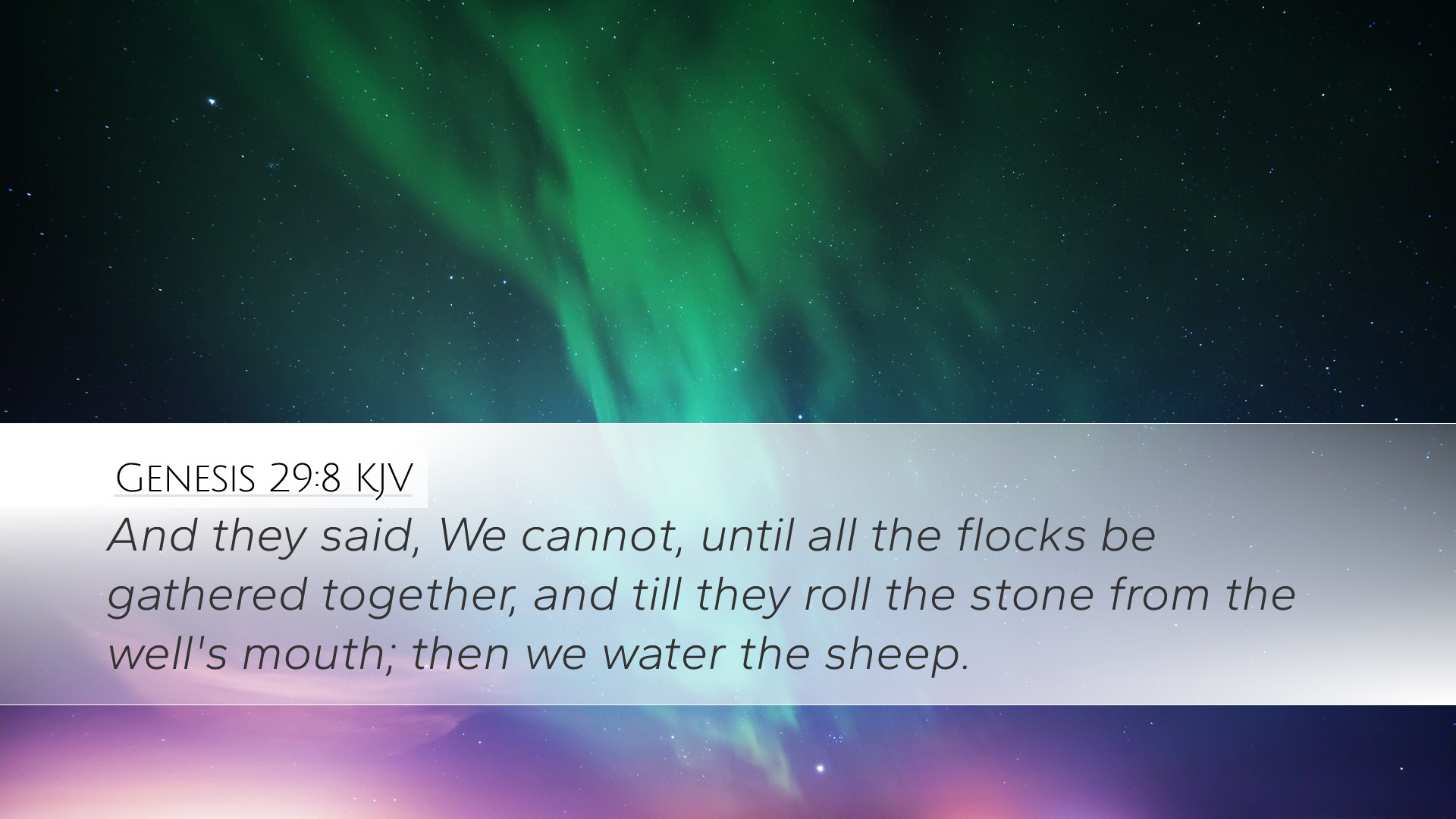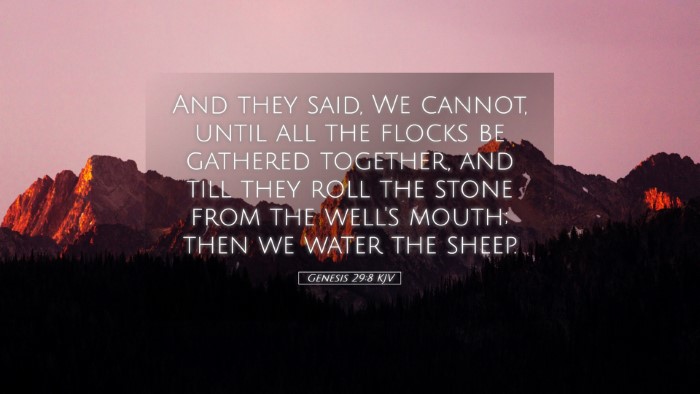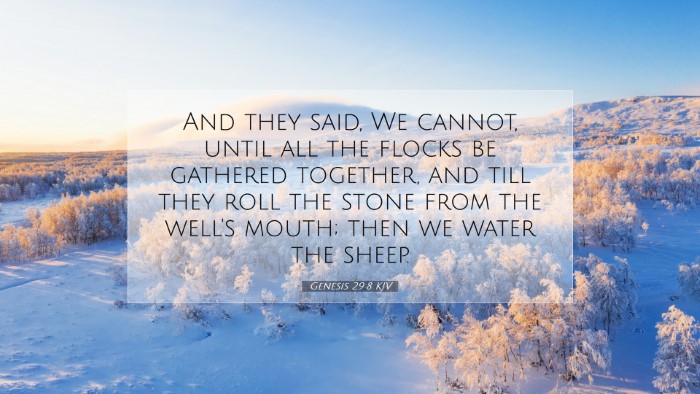Commentary on Genesis 29:8
Verse: "And they said, We cannot until all the flocks be gathered together, and till they roll the stone from the well's mouth; then we water the sheep."
Introduction
Genesis 29:8 presents an intriguing moment in the narrative surrounding Jacob's arrival in Haran, showcasing the cultural and social practices of pastoral communities. The verse captures the collective efforts required to tend to the flocks and the logistical challenges surrounding the watering of sheep. This commentary amalgamates insights from public domain sources, emphasizing three key themes: communal labor, the metaphor of wells, and the implications of Jacob's character.
Contextual Background
This verse occurs during a significant transition in Jacob's life as he flees from his brother Esau and travels to his uncle Laban’s home. Upon arriving, he encounters shepherds tending to their flocks by a well. The cultural context of this event underscores the communal nature of agricultural and pastoral life in ancient times.
1. The Importance of Community in Labor
In examining the communal aspect emphasized in Genesis 29:8, Matthew Henry notes the necessity of collaboration among shepherds. The statement, "We cannot until all the flocks be gathered," underscores a cultural understanding that tasks are often collective—reinforcing community bonds. Each shepherd relies on the others, reflecting a broader theological theme of unity and partnership among believers.
Adam Clarke further posits that communal effort in ancient societies was not merely a matter of efficiency; it was a moral obligation. The watering of sheep required the cooperation of all the shepherds, signifying shared responsibilities and interdependence. The delay in fulfilling this task due to the rolling of the stone highlights the inherent challenges that arise within community dynamics.
2. The Metaphor of Wells and Watering
Wells serve as powerful symbols in the Biblical narrative, often representing sustenance, refreshment, and revelation. In this situation, the stone’s role at the well reflects the barriers that prevent access to vital resources. Albert Barnes remarks that the rolling of the stone signifies that some resources and nourishment require effort to access. The physical act of rolling away the stone can be seen as a reflection of Spiritual truths, indicating the need for divine intervention and human effort in acquiring spiritual sustenance.
This metaphor extends into the teachings of Christ, who spoke of 'living waters.' The well can be viewed as a precursor to understanding Jesus’s offer of spiritual nourishment to believers, as noted in the Gospel of John (John 4:10). Thus, this historical setting serves not only as a narrative detail but as foreshadowing for the greater spiritual truths found throughout Scripture.
3. Jacob's Role and Character Development
Pivotal to this narrative is Jacob, who is depicted here as observant and eager to engage with the shepherds. Matthew Henry suggests that Jacob’s question and anticipated involvement are indicative of his character—marked by ambition and a desire to step into his responsibilities. His interactions not only reveal his personality but also serve a prophetic role as he navigates relationships that will bear significant weight in the unfolding of God’s plan.
Furthermore, Adam Clarke reflects on Jacob's initial role as a wanderer, someone who finds himself in new environments seeking purpose and identity. The verse illustrates his adaptability as he seeks to integrate into Laban's household—a narrative theme that resonates with themes of pilgrimage and transformation seen throughout biblical texts.
Conclusion
Genesis 29:8 offers profound insights into the interplay of community, the significance of spiritual nourishment, and the evolving role of Jacob within the larger narrative. For pastors, students, and theologians, these insights remind us of the value placed on communal relationships in ministry, the necessity of pursuing spiritual sustenance, and the importance of character in leadership roles.
As we reflect on this verse, let us consider how the collective efforts of our communities can lead to fruitful endeavors in God’s Kingdom, and how we, like Jacob, are called to engage faithfully with those around us.


